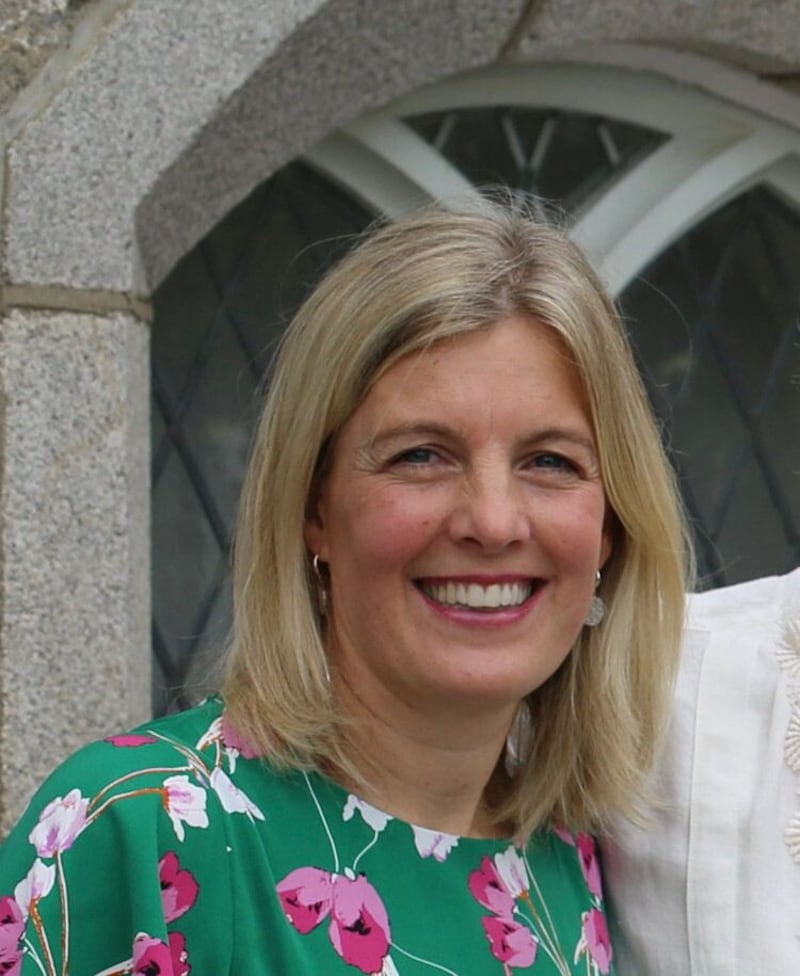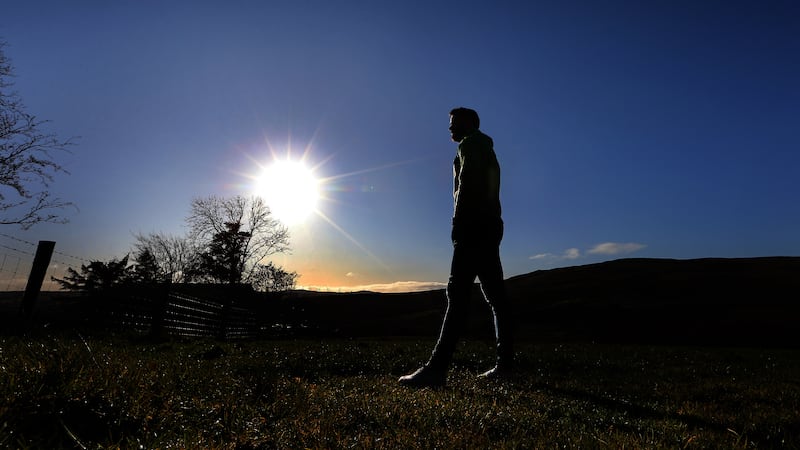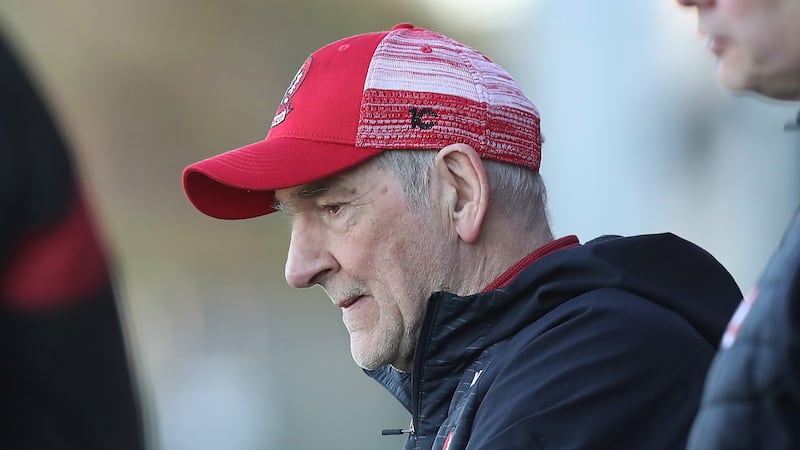IT’S a Tuesday afternoon in the first week of November 2019.
The sun is unseasonably strong. Maybe that’s just the way Strabane is.
I’m sitting just inside the door of Costa Coffee in the town’s retail park. Ronan McNamee arrives.
A well-wisher stops him at the entrance and spends a few minutes congratulating him. That becomes a theme of the afternoon.
He’d just won an Allstar. The hour-and-a-half or so that he’s there remains so vivid to this day.
Ronan McHugh, his clubmate and at that time Tyrone team-mate too, rings. The pair are planning to meet up with the rest of the Tyrone players and go up to the wake of Frank Burns’ father.
The story knits itself together. McNamee is after telling a yarn about how in a starred game between Aghyaran and Pomeroy a few years ago, they fell out.
Benny Gallen was soloing up the sideline with the ball (there’s a want in him, same as most goalkeepers) and a Pomeroy body leans in from the other side of the line to shoulder him. All hell breaks loose.
Burns and McNamee end up in a shoving match.
“My brother was in the stand with a camera, and he got pictures. 10, 15 boys and all you see is Frank reaching in over the top and smacking me. And then there’s another picture of me reaching in over the top and smacking him back.”
When they met at Garvaghey on the Tuesday night, they burst out laughing. That was it over.
It’s his empathy for the tough time the Burns’ are having that almost prompts him to unburden his own soul of the issues he’d had with his mental health.
Speaking last week of this Saturday’s Darkness Into Light walk, where thousands of people right around the country will go out together at dawn, McNamee said he hadn’t come to Strabane with any intention of opening up the way he did.
Prior to it, I knew absolutely nothing of his struggles either.
We’d been chatting maybe 15 minutes at this stage, bits and pieces, when he referenced going through “a shite period in 2015”. He’d tried to leave the panel, didn’t go training.
The Beard, as he always calls Mickey Harte, recognised that things weren’t right and kept at him. If he didn’t want to play football, fine, but the environment at Garvaghey was a better place for McNamee to be than where he might otherwise have been headed.
The conversation just developed organically. He was searingly honest about his troubles.
What’s always struck me about it since then was that virtually nobody had any idea that this was going on.
The public eye is often blind.
That day was a real lesson in never really knowing what is going on in someone’s life.
In the middle of last year, Ronan Rocks roped me in to help with the Bellaghy minor goalkeepers.
It only lasted a few months but, as a blow-in, you’re getting to know the young lads from fresh and making your own judgements on them.
They weren’t the greatest minor team in Bellaghy’s history but as young fellas, they were absolutely brilliant to work with.
When Ronan or Kieran Glackin or Noel O’Sullivan or Paul Brewster spoke, you’d have heard a pin drop.
They soaked up everything and they ran their guts out trying to get better.
Ruairi McErlean would come to training every night armed with a big, warm smile.
He was as good a footballer as was in the group, a brilliant reader of a game.
In the few conversations I’d have had with him one-to-one, he just seemed this really warm and wise young man.
I’d been there a good while before I discovered that his mother, Siobhán, was terminally ill.
Diagnosed with a brain tumour in February 2021, they were able to operate two weeks later and buy her close to two precious years.

You’d never have known it to look at Ruairi on the football field. Following in his brother Oisin’s footsteps, his shoulders were broad enough at just 16 years of age to bear it with a strength that others just wouldn’t have been able to find.
I think he got the natural running stride from Siobhán, who ran marathons and played basketball.
Her father, Flor O’Mahony, had played football for Dublin minors and both codes for Cuala.
Siobhán was born and raised in Dalkey. She attended at the Irish-speaking Coláiste Íosagáin, where they shared grounds and occasional classes with the boys from Coláiste Eoin, including one Dara Ó Briain.
Then she went to Australia and met Martin McErlean. They came home and settled on a life in south Derry.
It’s not easy being a blow-in anywhere. You have to be of the nature to go on yourself and do things.
It can be a bit like the parable of the drowning man. The boats and helicopters are there for anyone that wants to get on, but you have to go and do it yourself.
Siobhán McErlean did that. She was immersed in Bellaghy, in everything from being on the school board of governors having helped set up the playgroup to the parish council and the local running club.
When she passed away in November, leaving behind Martin and their four children, I met Ruairi at the door as we were leaving the wake.
And again, I was just struck by the same strength and maturity and composure he displayed every time he pulled on a pair of boots.
On Saturday week, May 20, on the weekend of what would have been her birthday, Le grá Siobhán takes place at Bellaghy GAA club in her memory.
A nurse who became a midwife and then ended up going around the schools passing on her love of the Irish language to children, you know that whatever sum of money they’ll be able to split between Marie Curie and the NI Hospice would have given her comfort.
Their only daughter Laoise turns 20 today.
The time the surgery bought them allowed Siobhán to be around for her 18th birthday.
They were able to create more memories for Tiernan, who was just 12 when his mother was diagnosed.
I learned as much from Ruairi McErlean as from Ronan McNamee.
Just because you can’t see someone’s suffering doesn’t mean that it isn’t there.









